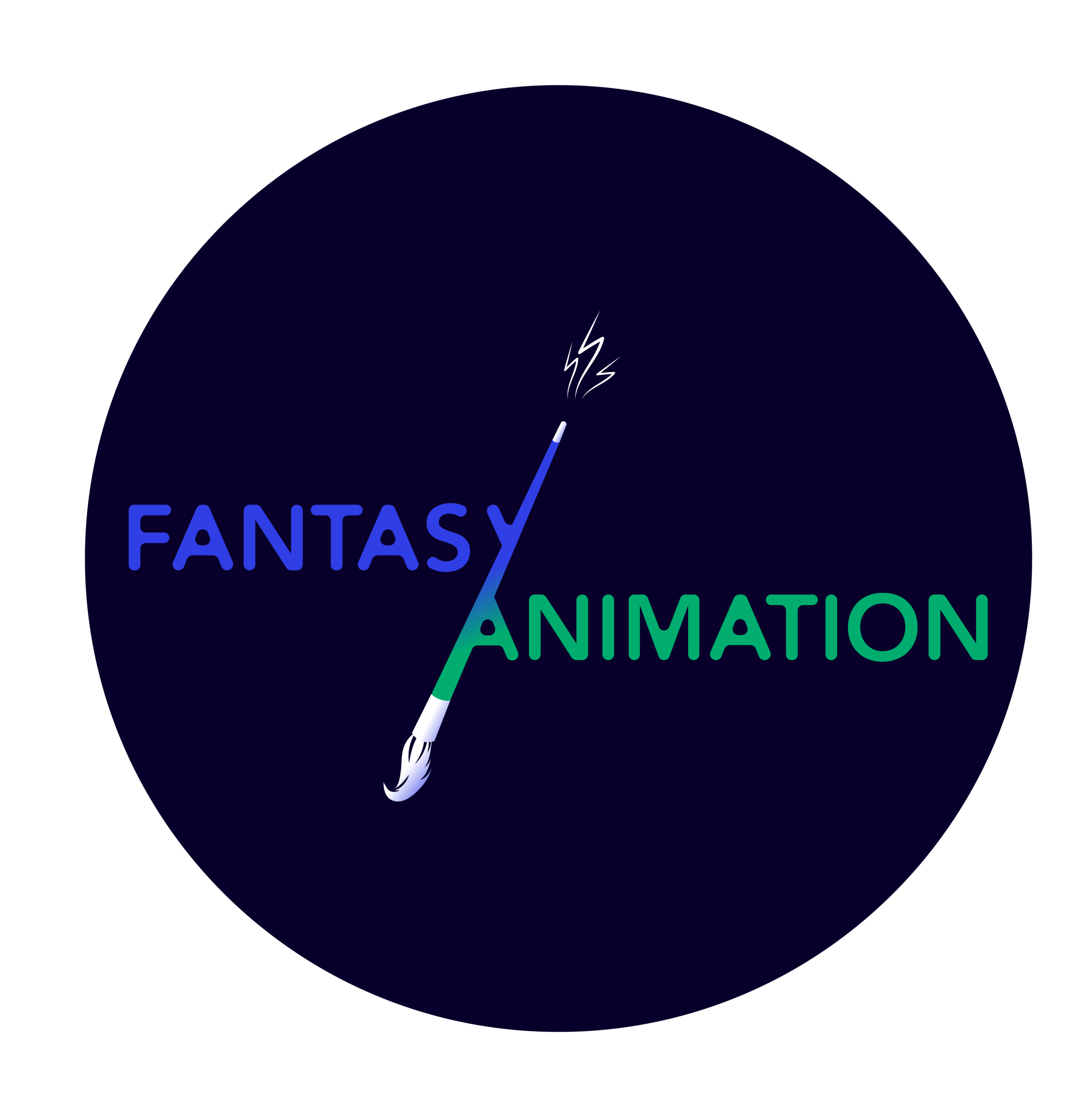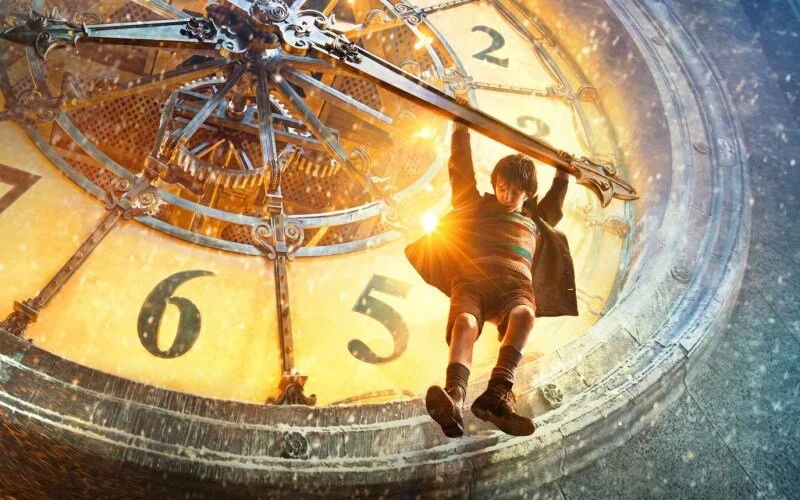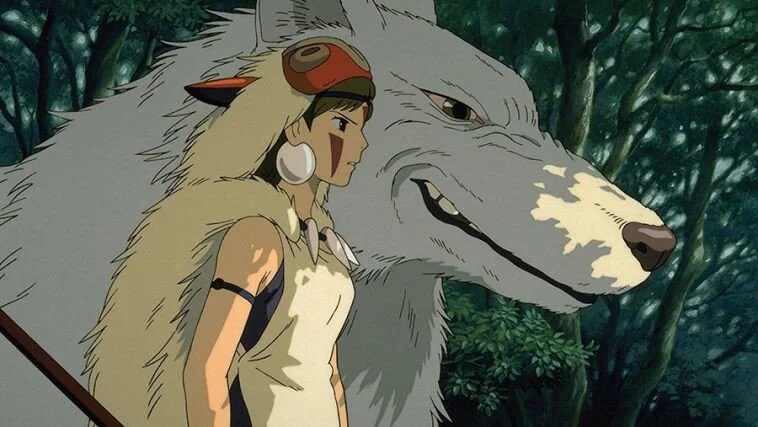Chris and Alex return to the feature films of the Bristol-based Aardman Animations studio for Episode 67, travelling from the world of Kensington propriety ‘up top’ to the underground chaos of Ratropolis ‘down below’ for Flushed Away (David Bowers & Sam Fell, 2006), which tells the story of the trials and tribulations of high society rat Roddy St. James who is inadvertently flushed down into the sewers of London. Mirroring this narrative collision of worlds, Flushed Away also bears the industrial weight of such duality, being part of a 12-year, four-film $250million agreement between Aardman and Hollywood studio DreamWorks Animation to produce a series of animated features.
Read MoreEpisode 66 is a real toe-tapper, as Chris and Alex dance to the beat of George Miller’s 2006 computer-animated musical feature Happy Feet (George Miller, 2006), produced by U.S. studio Village Roadshow Pictures in collaboration with Australian animation and VFX studio Animal Logic. Joining them to discuss this digital tale of all-singing all-dancing penguins is Dr Hannah Hamad, Senior Lecturer in Media and Communication at Cardiff University’s School of Journalism, Media and Culture, having previously been Lecturer in Film Studies at King’s College London, and Senior Lecturer in Media Studies at the University of East Anglia.
Read MoreAre we dreaming, or are we awake? How do we choose which realities to believe in? What levels of fictionality count? Find out in Episode 65, which works its way through the dream logic and desires of Inception (Christopher Nolan, 2010), a film that probes deep into our unconscious to revel in how dreams allow us to participate in a shared fantasy. Joining Chris and Alex as they kick back through the layers of Inception’s rhizomatic, mazelike structure is Todd McGowan, Professor of Film Studies in the Film and Television Studies Department at the University of Vermont, and author of a number of books on psychoanalytic film theory, film comedy and popular media, including The Real Gaze: Film Theory after Lacan (2007) and The Fictional Christopher Nolan (2012).
Read More2021 kicks off with a supersonic bang as Chris and Alex return to the Marvel Cinematic Universe (MCU) to explore the world of Kree Empires, alien shapeshifters, flerkens, and digital de-aging in American superhero feature Captain Marvel (Anna Boden & Ryan Fleck, 2019), based on the celebrated Marvel Comics character. Joining them for a discussion of Hollywood special effects production and the labour of fantastical imagery are the film’s VFX Producer Christine Neumann and VFX Supervisor Dominik Zimmerle of German visual effects studio Trixter based in Munich, whose work also includes a number of Hollywood blockbusters and other MCU entries Spider-Man: Homecoming (Jon Watts, 2017), Thor: Ragnarok (Taika Waititi, 2017), Guardians of the Galaxy Vol. 2 (James Gunn, 2017), Black Panther (Ryan Coogler, 2018) and the upcoming Black Widow (Cate Shortland, 2021).
Read MoreThe Christmas spirit is finally in the air, with Chris and Alex using Episode 63 of the podcast as their annual opportunity to discuss all things seasonal - this time examining the fantasy of Christmas advertising, and the repeated role played by animation in the construction of festive commercials, television ads and brand promotions. They are joined in their Yuletide deliberations by Dr Malcolm Cook, Associate Professor in Film Studies (University of Southampton), whose numerous publications include the monograph Early British Animation: From Page and Stage to Cinema Screens (2018) and the co-edited collection (with Professor Kirsten Moana Thompson) Animation and Advertising (2019).
Read MoreThe names Bond…James Bond in Episodes 61 and 62, as Chris and Alex tackle the official Eon James Bond 007 film series by casting their eyes over a longstanding staple of the franchise - the celebrated credits sequences. Beginning with Dr. No (Terence Young, 1962) and culminating in Spectre (Sam Mendes, 2015), listen as they place in rank order their ‘Top 24’ title sequences, judging their audiovisual spectacle, structural elements and broader connections to traditions in animated fantasy (Part 1 focuses on Bond films #24 to #13, while Part 2 counts down from #12 to their #1 ranked 007 title sequence). Joining them for this extended double-header is Dr Ed Lamberti, an independent researcher in Film Studies who has been a teaching assistant at King's College London, a screenwriting mentor at the London Film School, and who is currently Policy Manager at the British Board of Film Classification (BBFC).
Read MoreHeffalumps and Woozles take centre stage for Episode 60 of the podcast, as Chris and Alex take a trip deep into Hundred Acre Wood to confront Christopher Robin (Marc Forster, 2018) (not to be confused with the earlier A.A. Milne biography Goodbye Christopher Robin [Simon Curtis, 2017]…), and its pleasures of nostalgia.
Read MoreEpisode 59 heralds Chris and Alex’s first foray into silent film comedy via the work of performer Buster Keaton, looking at his feature Sherlock Jr. (Buster Keaton, 1924) that celebrates the dreams and psychology of a movie theatre projectionist. Joining them as the lights go down is Peter Adamson, Professor of Late Ancient and Arabic Philosophy at the Ludwig-Maximilians-Universität (LMU) in Münich and King's College London, and host of the successful History of Philosophy without any gaps podcast that examines the “ideas, lives and historical context” of both major philosophers and more lesser-known figures.
Read MoreThe anarchy and artistry of British television animation provides the springboard for Episode 58 of the Fantasy/Animation podcast, which welcomes London-based media artist, animator and curator Professor Birgitta Hosea (who is also the Director of the Animation Research Centre at the University for the Creative Arts) to talk about Roobarb (Grange Calveley, 1974) directed by English animator Bob Godfrey.
Read MorePerformer, composer, silent film accompanist and television presenter Neil Brand is the special guest joining Chris and Alex for Episode 57 of the podcast, which celebrates the musical beats and Mariachi owls of Rango (Gore Verbinski, 2011). Listen as they discuss how this curious 2011 computer-animated film revels in the power of telling tales alongside its broader relationship to folk ballads; Rango’s cinephilic evocation of canonical Hollywood Westerns and U.S. cinema history; themes of ambition, isolation, and aimlessness, and how this ties into a film whose existentialist narrative is predicated on the question of inevitability.
Read MoreThe latest Listeners’ Choice episode sees Chris and Alex turn to Netflix and the much-maligned yet curiously provocative feature film Bright (David Ayer, 2017), whose narrative of racism, police corruption and latent magical forces is set against the backdrop of an alternate fantasy vision of contemporary Los Angeles. With a budget of $90 million, Ayer’s social discourse via fantasy (the script was written by Max Landis) was critically-derided despite being Netflix’s most downloaded feature within its first week of release.
Read MoreChris and Alex dust off their knowledge of early film history for Episode 55 as they examine Martin Scorsese’s adventure Hugo (2011), a playful mystery set in 1930s Paris that takes audiences through the special effects and spectacular stagecraft of pioneering filmmaker Georges Méliès. Joining Chris and Alex amid the architecture of the Gare Montparnasse is Eric Smoodin, Professor of American Studies and Cinema and Technocultural Studies at the University of California, who has published monographs and edited collections on Walt Disney, Frank Capra and Hollywood film history, as well as a new book Paris in the Dark: Going to the Movies in the City of Light, 1930–1950 (Duke University Press, 2020) that sketches a picture of French film culture of the 1930s and 1940s.
Read MoreIn an alternate 1985, Chris and Alex sit down to watch the recent comic book feature film Watchmen (Zach Snyder, 2009), a neo-noir/superhero blockbuster that adapts the popular DC Comics series for the big screen. They are joined in this Cold War-era tale of Soviet Union-United States relations by Dr Drew Morton, Associate Professor of Mass Communication at Texas A&M University, Texarkana, and author of Panel to the Screen: Style, American Film, and Comic Books During the Blockbuster Era (University Press of Mississippi, 2016), as well as a number of articles and chapters on motion comics, media convergence and comic book adaptation.
Read MoreEpisode 53 journeys into the irregular and twisting world of Spanish fantasy cinema, with Chris and Alex joined in their discussion of Pan’s Labyrinth (Guillermo del Toro, 2006) by Deborah Shaw, Professor of Film and Screen Studies at the University of Portsmouth, and a specialist in Latin American cinema whose publications include The Three Amigos: The Transnational Filmmaking of Guillermo del Toro, Alejandro González Iñárritu, and Alfonso Cuarón (Manchester University Press, 2013), as well as the edited collections The Transnational Fantasies of Guillermo del Toro (Palgrave Macmillan, 2014), and Latin American Women Filmmakers: Production, Politics, Poetics (I. B. Tauris, 2017).
Read MoreFor the first in a special series of listener selections, Episode 52 has Chris and Alex get to grips with Persepolis (Vincent Paronnaud & Marjane Satrapi, 2007), taking inspiration from social media suggestions that were submitted around the broader theme of diversity and inclusion. Adapted from Marjane Satrapi’s own autobiographical graphic novels Persepolis and Persepolis 2 (originally published in November 2000), Persepolis provides a stark - and often humorous - depiction of national trauma told through Marji’s own experience as she navigates the Iranian Revolution and overthrow of the Shah regime and Pahlavi dynasty; is exiled to Austria, before returning to Iran where she marries (and divorces); and climaxes with her arrival into France.
Read MoreEpisode 51 travels back to the late-1980s to look closely at Beetlejuice (Tim Burton, 1988), a film that uses stop-motion, practical effects, prosthetics, make-up and bluescreen to complete its fantasy story of netherworlds, outsiderdom and life after death. Joining Chris and Alex is special guest Jingan Young, playwright, screenwriter, journalist and academic who is the editor of ‘Foreign Goods’ (the first collection of British Chinese plays published in the UK) and a regular contributor to The Guardian and Hong Kong Free Press, who has recently completed a PhD in Film Studies at King’s College London.
Read MoreFor the podcast’s half century, Chris and Alex tackle a tale of rising tensions between nature and culture, gods and humans, by looking at Studio Ghibli’s animated fantasy feature Princess Mononoke (Hayao Miyazaki, 1997). Joining us in this battle of tradition and modernity is anime scholar Dr Rayna Denison, Senior Lecturer in the School of Art, Media and American Studies at UEA, and author and editor of a number of books, chapters and articles on Japanese animated cinema.
Read MoreRecorded live at the Portsmouth Bookfest on Tuesday 25th February 2020, this bonus episode of the podcast has Alex flying solo as he interviews artist and illustrator Graham Humphreys, best known for designing the iconic film posters for horror features The Evil Dead (Sam Raimi, 1981) and A Nightmare on Elm Street (Wes Craven, 1984).
Read MoreEpisode 48 is a mid-1990s feast of action, water, and a drenched Kevin Costner, as Chris and Alex attempt to stay afloat for their visit to Waterworld (Kevin Reynolds, 1995), the ill-fated post-apocalyptic action adventure that has earned its place in U.S. film history seemingly for all the wrong reasons. The special guest for this instalment is Simon Brew - founder and editor at Film Stories magazine/podcast.
Read MoreEpisode 47 bobs along on the bottom of the beautiful briny sea, with Chris and Alex gliding far below the rolling tide and through the bubbly blue and green for this latest episode of the podcast, which this week looks at musical fantasy Bedknobs and Broomsticks (Robert Stevenson, 1971).
Read More
























